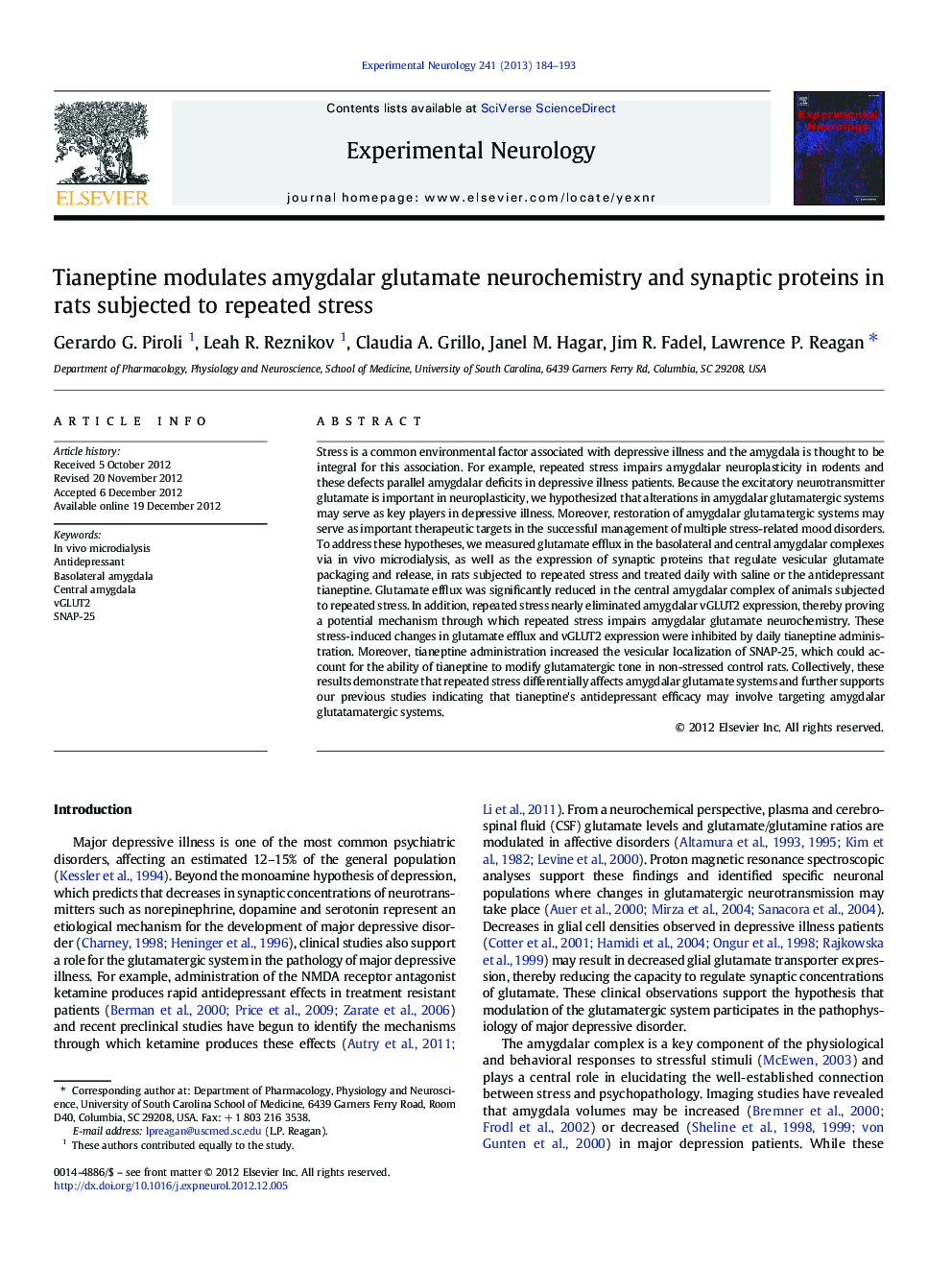| کد مقاله | کد نشریه | سال انتشار | مقاله انگلیسی | نسخه تمام متن |
|---|---|---|---|---|
| 6018211 | 1580191 | 2013 | 10 صفحه PDF | دانلود رایگان |
Stress is a common environmental factor associated with depressive illness and the amygdala is thought to be integral for this association. For example, repeated stress impairs amygdalar neuroplasticity in rodents and these defects parallel amygdalar deficits in depressive illness patients. Because the excitatory neurotransmitter glutamate is important in neuroplasticity, we hypothesized that alterations in amygdalar glutamatergic systems may serve as key players in depressive illness. Moreover, restoration of amygdalar glutamatergic systems may serve as important therapeutic targets in the successful management of multiple stress-related mood disorders. To address these hypotheses, we measured glutamate efflux in the basolateral and central amygdalar complexes via in vivo microdialysis, as well as the expression of synaptic proteins that regulate vesicular glutamate packaging and release, in rats subjected to repeated stress and treated daily with saline or the antidepressant tianeptine. Glutamate efflux was significantly reduced in the central amygdalar complex of animals subjected to repeated stress. In addition, repeated stress nearly eliminated amygdalar vGLUT2 expression, thereby proving a potential mechanism through which repeated stress impairs amygdalar glutamate neurochemistry. These stress-induced changes in glutamate efflux and vGLUT2 expression were inhibited by daily tianeptine administration. Moreover, tianeptine administration increased the vesicular localization of SNAP-25, which could account for the ability of tianeptine to modify glutamatergic tone in non-stressed control rats. Collectively, these results demonstrate that repeated stress differentially affects amygdalar glutamate systems and further supports our previous studies indicating that tianeptine's antidepressant efficacy may involve targeting amygdalar glutatamatergic systems.
⺠Glutamate efflux in the basolateral amygdala is unaffected by repeated stress ⺠Repeated stress reduced acute stress-evoked glutamate efflux in the central nucleus ⺠Repeated stress nearly eliminated vGLUT2 levels in the rat amygdala ⺠Daily tianeptine administration reversed these repeated stress-induced deficits ⺠Tianeptine increased SNAP-25 association with VAMP
Journal: Experimental Neurology - Volume 241, March 2013, Pages 184-193
